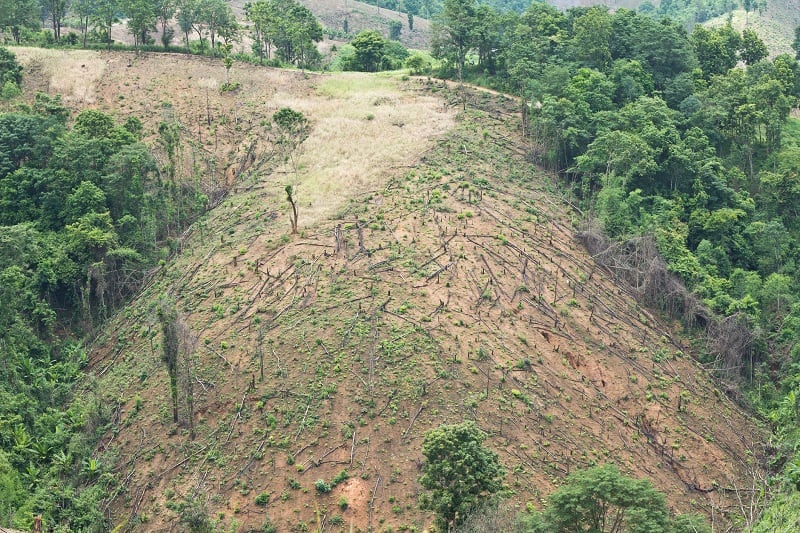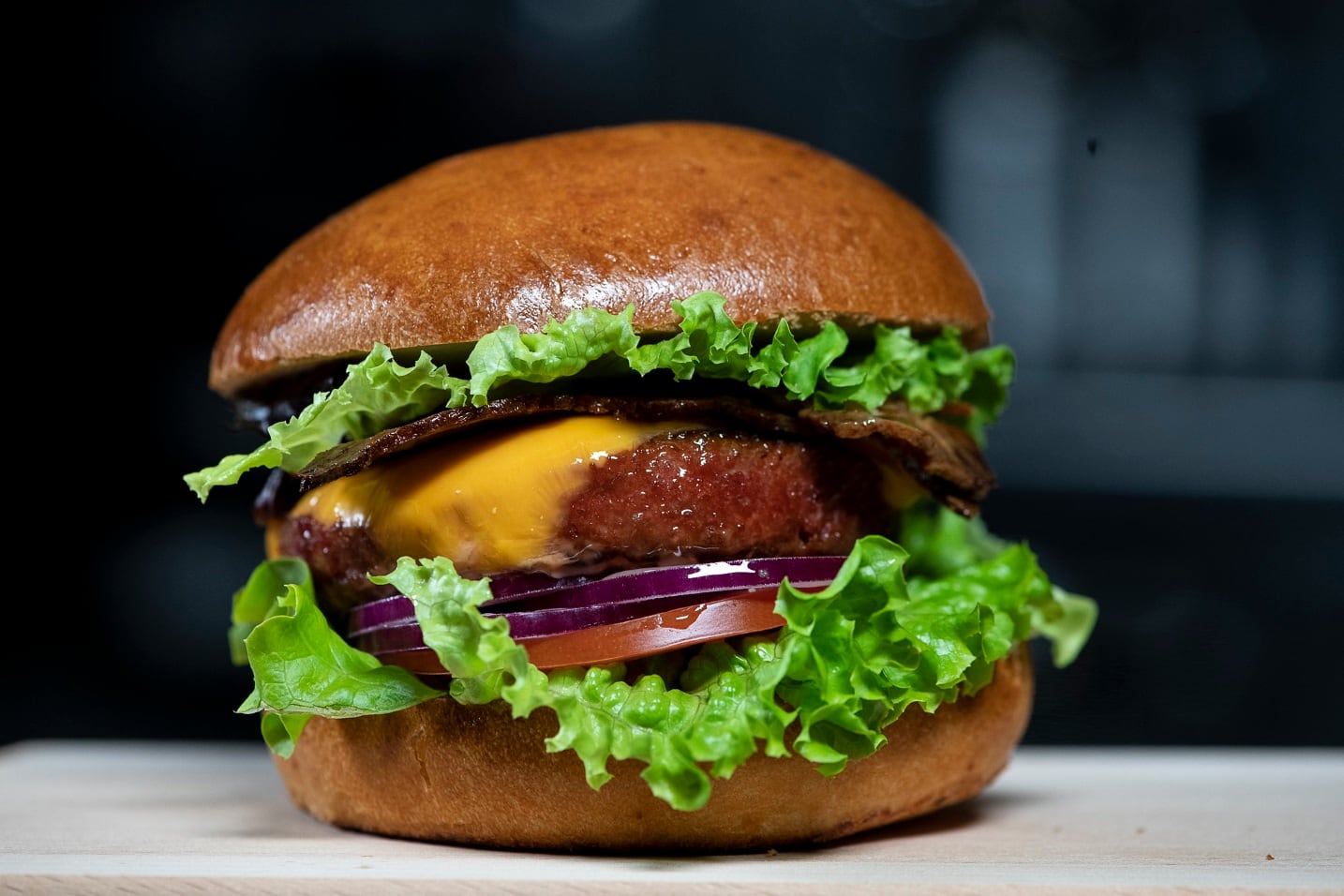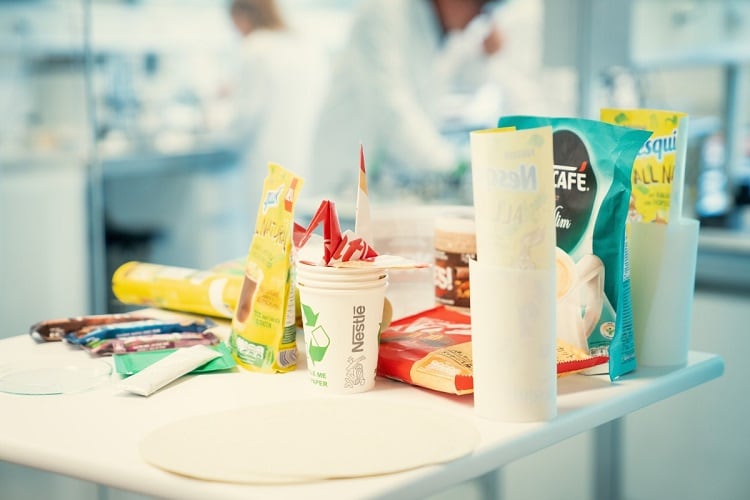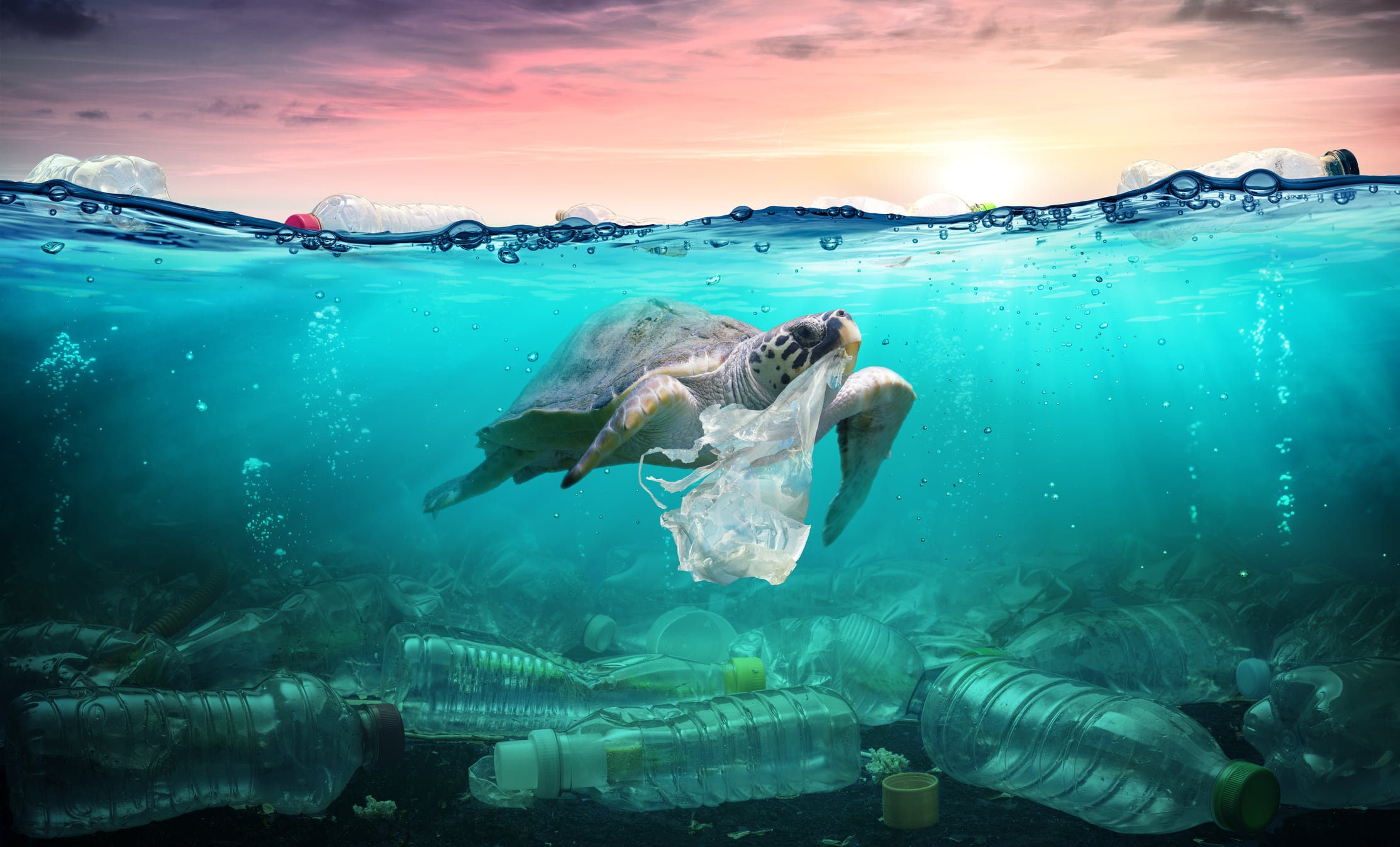Mondelēz, Nestlé and Unilever are among a coalition of 10 major palm oil producers and buyers collaborating to support and fund the development of a new publicly available radar-based forest monitoring system known as Radar Alerts for Detecting Deforestation (RADD).
The system aims to make it much easier for companies and other stakeholders to see deforestation happening in near-real-time and with greater accuracy. With this information, they can more quickly mobilise, follow-up actions on the ground and work to improve the sustainability of commodity supply chains.
The RADD system is currently being developed for Indonesia and Malaysia. Preliminary results from the two countries indicate that the new RADD system can detect tropical deforestation several weeks earlier than optical-based systems.
The new system can penetrate cloud cover and gather forest change information
Developed by Wageningen University and Satelligence, and facilitated by World Resources Institute, the RADD system will augment existing publicly available monitoring tools that rely on optical-based satellite imagery, which can be delayed when clouds obstruct the view of forests. Through the use of radar waves, the new system can penetrate cloud cover and gather forest change information without being affected by clouds or sunlight.
What makes RADD unique is that it is the first radar-based monitoring system of this scale that will make deforestation alerts publicly available. Once the system is complete, the alerts will be available on Global Forest Watch and Global Forest Watch Pro, and the methodology behind the alerts will be published.
The new system will utilize freely available radar data from the European Space Agency’s Sentinel-1A and B satellites, which orbit the earth every six to 12 days. These satellites provide high spatial detail that will also improve detection of smaller clearing events.
Throughout the RADD system development over the next two years, partner companies will receive alerts about detected deforestation events and will provide crucial feedback to improve the system. The open nature of the system will enable companies - plus governments, civil society organizations and concerned stakeholders - to monitor forests using the same information source and standards.
Palm oil is a major cause of forest destruction
It is estimated that half of all packaged supermarket products contain palm oil. Oil from the fruit of the palm tree has a unique fatty acid and TAG profile which makes it suitable for a number of food applications. It is used to make chocolate biscuits, soap, shampoo, cosmetics and cleaning products and is in a wide variety of brands - from Cadbury’s chocolate buttons to Kit Kats, Oreo biscuits, Mr Kipling Angel Slices and Nutella. It is a rich source of carotenoids and tocopherols, which offer foods natural stability against oxidative deterioration. It is also used as a source of fatty acids, vitamin E, and emulsifiers.
Around 24 million hectares of rainforest were destroyed in Indonesia between 1990 and 2015, according to official figures from the Indonesian government.
Back in 2010, some of the world’s biggest brands signed a landmark pledge to cut the rate of natural forest loss by half and restore 150 million hectares of land by 2020. However, last month a report from Climate Focus revealed that this pledge by companies will very likely not be met.
“Companies are miles away from ending deforestation for palm oil,” added Greenpeace. “Many still don’t even know where their palm oil comes from. In fact, there’s no way for brands to tell how much forest is being destroyed to supply them with cheap palm oil.
“Brands have broken their promise to clean up the palm oil industry. To save Indonesia’s rainforests brands have to use less palm oil – and any palm oil they do use must come from suppliers that are 100% deforestation-free.”
‘The urgency persists’
Will the RADD system now allow food giants to meet their deforestation commitments? No, according to Climate Focus Director Charolotte Streck. But it’s a certainly an important initiative, she told FoodNavigator.
“In recent months there has been significant progress in deforestation risk mapping by companies as well as in supply-chain traceability,” she noted. “Pre-competitive cooperation among companies, NGOs and research organizations is certainly an important step forward. The Palm Oil RADD technology is one example, the cooperation of companies in the Cocoa and Forest Initiative in West Africa is another.”
She believes the RADD technologies allow companies to react much quicker to deforestation threats and makes such action also visible to civil society. What’s more, these projects follow the recognition that action to address commodity-driven deforestation will be more successful if applied at the regional or national scale.
However, she warned that eliminating deforestation from single-supply chains while possible will not solve the problem. “The risks of displacement is just too high. But these efforts will most likely come too late to meet the 2020 goals, they will hopefully reduce the delay with which these goals are met to a few years. The urgency persists.”
‘No longer can anyone claim to be unaware of the risks around their supply chains’
Consumer goods giants Mondelēz and Unilever said the RADD initiative will allow for more efficient use of resources and ultimately help prevent further deforestation. “Technology is fast-evolving to enable sector-wide, near real-time monitoring of the palm sector. Sustainable palm oil production benefits everyone and tools like this bring it within reach,” said Jonathan Horrell, Director Global Sustainability, Mondelēz International.
Petra Meekers, Head of Sustainable Sourcing, Unilever, added: “We are committed to developing a range of technologies that will enhance and accelerate our efforts to address potential issues within our supply chain. Better radar monitoring is an essential piece of this puzzle. We always aim to be the first to know and the first to act, so we are pleased to be supporting advanced tools that will make risks known to us even sooner.”
Nestlé also welcomed the initiative. Since the end of 2018, Nestlé has been monitoring 100% of its global palm oil supply chains using Starling, a monitoring system using optical and radar satellites. This allows the company to manage risks and perform field intervention strategies to drive changes.
It called RADD a step further to realize its no deforestation commitment. “No longer can anyone claim to be unaware of the deforestation risks around their supply chains,” said Benjamin Ware, Global Head of Responsible Sourcing, Nestlé.
“We take an integrated approach in addressing the risks of deforestation, combining tools like certification, supply chain mapping, on-the-ground verification and satellite monitoring,” he added. “We are pleased to support the development of forest monitoring system like RADD as it will bring accountability and transparency across the industry.”
Nestlé is committed to having deforestation-free products. As of April 2019, 77% of the key agricultural commodities Nestlé buys, including palm oil, were verified deforestation-free. That figure will surpass 90% by the end of 2020. Nestlé will continue to work with smallholder farmers and large suppliers alike to be close to 100% deforestation-free within the next three years.
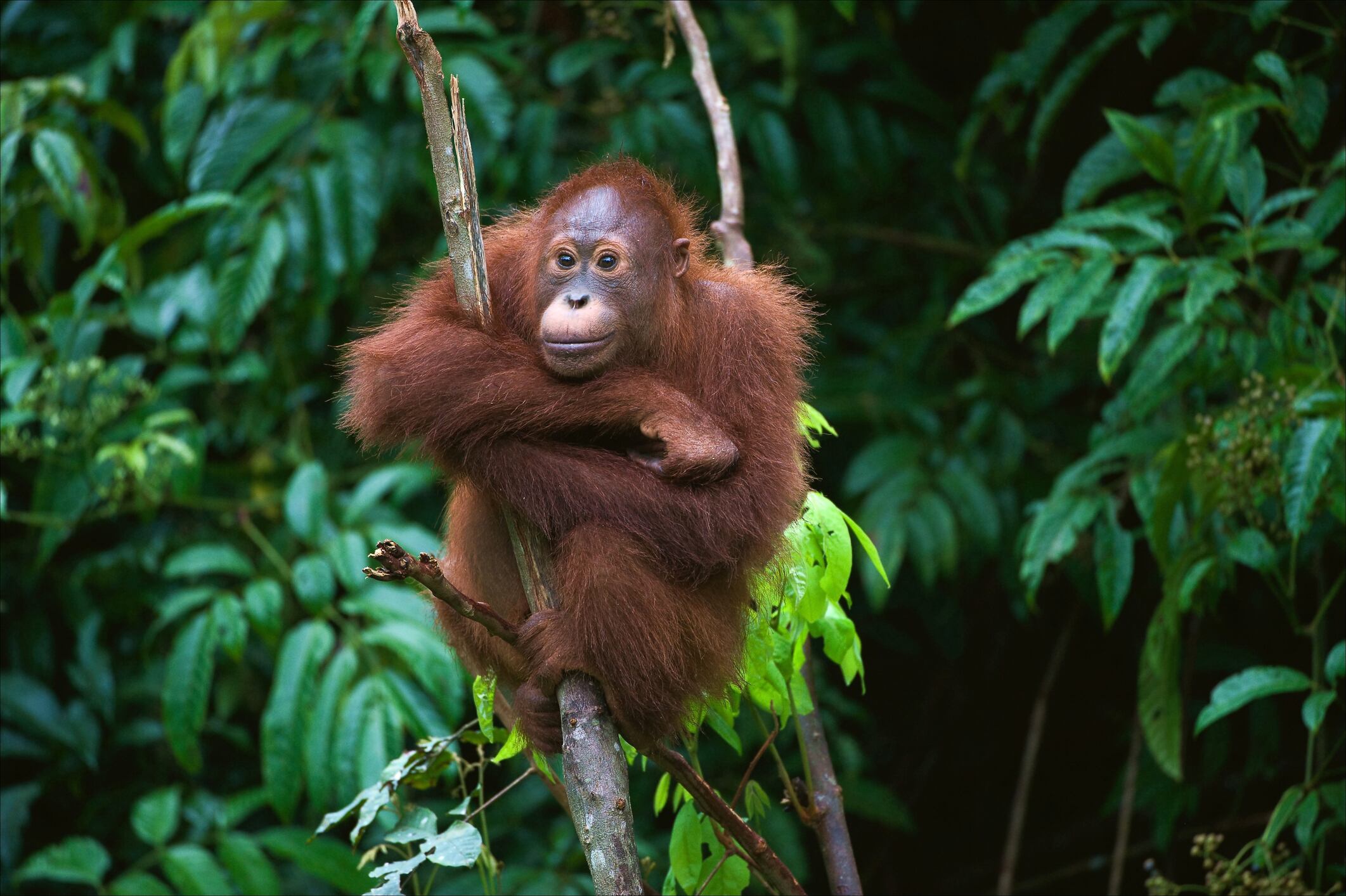
Is palm oil next for the Attenborough effect?
News of the RADD initiative came as a new David Attenborough documentary, aired on BBC1 on 3 November, highlighted how the rainforests of Borneo and Sumatra have been razed to make palm oil for the West.
David Attenborough’s Blue Planet II documentary in 2017, which exposed the dangers of plastic pollution to marine life, has been credited for driving more than half of UK consumers to reduce the amount of plastic they use; a fact that has piled pressure on the food and beverage industry to discover new innovations to cut down on plastic pollution.
In his latest BBC1 series, called Seven Worlds, One Planet, Attenborough compared the state of the rainforests today to his first visit to Borneo in 1956. Attenborough claimed about half the orang-utan population has been wiped out and the Sumatran rhino is almost extinct because of its declining habitat. “Asia has undergone a faster change in the past 100 years than any other time in its history… Its forests are being annihilated,” he lamented.
The documentary suggested consumers could help by “buying products made with deforestation - free sustainable palm oil from companies that support local people using existing plantations without cutting down more rainforest.”
‘Certified sustainable palm oil is as useful as a chocolate teapot’
But news of the RADD initiative also came as Greenpeace reported its concerns about sustainable palm oil, which it calls a con.
In 2004, the palm oil industry set up the Roundtable on Sustainable Palm Oil (RSPO). RSPO members have their palm oil ‘certified sustainable’ and brands using this palm oil get to claim that their palm oil is ‘sustainable’. But the RSPO is about as much use as a ‘chocolate teapot’, said Greenpeace.
“It took 14 years for the RSPO to ban its members from destroying forests – which it finally did in November 2018. It still hasn’t enforced this new rule – and RSPO members are still destroying forests and getting away with it.”
Greenpeace is also preparing to publish a report this week on the links between big business and the thousands of fires in Indonesia’s rainforests earlier this year, which it says were mostly started deliberately to clear land for palm oil.


